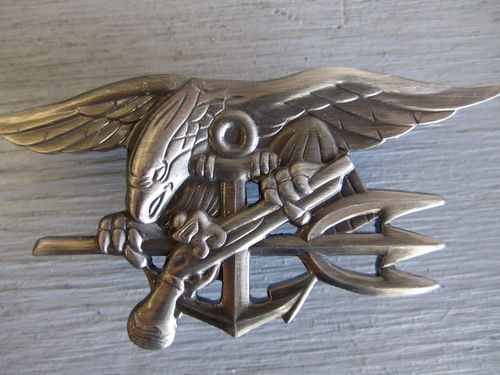Honor. It’s a word that has lost meaning in much of our society. It is rarely used and poorly understood. Organizations, like the National Honor Society, use the alternate meaning of the word honor in celebrating an achievement or awarding a level of distinction. In fact the word honor, originating from Latin, is historically rooted in the concept of nobility and living by a code of conduct. You and I know that acting with honor is more than getting good grades or raising the most money.
The US Navy uses the word honor as one of three guiding values:
Honor, Courage, Commitment
At an individual level we do often see heroic and honorable actions in military settings and other domains where risk is high and the team bond is strong. Consider Navy SEAL Michael Monsoor, who chose to receive an exploding grenade thrown by insurgents to save his teammates lives. I can’t think of a selfless act more honorable than sacrificing your life for those to whom you are committed in a mission. Mahatma Gandhi is another example of deep-rooted character and honor, willing to sacrifice himself for his countrymen in an act that changed the world.
When an individual is clear about his stand—his personal ethos—then acting with honor in a critical moment of choice is second nature. Because the individual is aligned with what is worth living AND worth dying for he or she can instantly sense the right course of action. Their actions are decisive and powerful, and—with the gravity of the consequences— largely unexpected by observers.
Honor as a way of life is an outlier. It is grounded in inter-connectedness and abundance and is uncommon in today’s story of separation and scarcity. However, I do see it is arising in social entrepreneurs and continues to be ground zero for many authentic, “kokoro” (heart-mind) warriors.
A major problem lies in the administrative nature of our organizational systems. Whether government, business, educational, medical and non-profits, accountability is radically diffused throughout these faceless bureaucracies. The leaders are numbed by fear of the loss of face, of losing their power or their livelihood. These overt and covert trappings of power, rank and office, accumulated over the years, lay in balance with each decision. Layers of regulatory red tape, competing interests and mind-numbingly slow decision-making all contribute to the death of honor in organizational decision-making.
It will take kokoro leadership to restore honor to our institutions. Those leaders must live by a stand and have the courage to carry that stand into their organization. It requires that the leadership teams maintain a commitment to standing firm so that individual, team and institutional behaviors align in mutual support – and do no harm to others or the environment. These leaders must dare to be special.
You get this, but the language for honor, and role models for it in everyday life, are sparse! How can we step into honor?
I submit that developing the foundation of character necessary for honor starts with crafting a clearly defined stand from which we WILL NOT waiver (unless there is a damn good and honorable reason!) This stand is like the mariner’s navigation system – both you and others can count on it to make a difference in the journey through the storms of life. It is the guardrail that keeps your family and team motorcade on the road on a windy, dangerous road. It is the handrail that holds you up, keeps you from falling down, and leads you in the direction you need to go in the dark.
So…the question is: What do you stand for?
Only you can answer this question. However you decide upon and formulate your stand, expect an enormous sense of relief in the knowledge of where you stand on things that really matter. Relief for both you and those around you. My friend, Navy SEAL Captain Bob Schoultz, will be guiding us in this journey at our December Unbeatable Mind Retreat. He will share his beliefs on the concept of personal honor and have us examine how we stand with regard to the following.
Hardship. Does your personal ethos lead you to cultivate resiliency in times of suffering? Or do you hunker down and ride out the storms?
Heart. Does your personal ethos help you connect at a world-centric level, or are you stuck in a less honorable “my story is better than your story” or “my tribe is better than your tribe” level of consciousness?
Joy. Do you take yourself too seriously in an attempt to be “perfect” or be the stoic leader? Or does your ethos allow for seriousness of effort balanced with joy, laughter and humor.
Challenge. Does your stand push you to challenge the status quo, to find your 20X every day, week, month and year? Do you commit to earning that metaphorical trident of respect every day? Or do you avoid the risks and let others lead the way?
Silence. Does your personal ethos allow time for reflection, inquiry and recovery. Or do you charge from one task to another, avoiding intimacy even with yourself?
These are just a few of the weighty questions we must answer. They require us to be honest with ourselves, which is a pre-requisite of acting with honor amongst others.
Developing a stand and acting with honor will reveal weaknesses in your team and organization. You will suffer the inevitable consequences from those who have something to lose from your honor, courage and commitment. This mantra will serve you well: Honor today, no regrets tomorrow. In short order you will gain the respect and trust from those who are counting on you to be part of the solution, and not the problem.
Hooyah! Mark Divine
Leave a Reply cancel reply
You must be logged in to post a comment.



No Comments